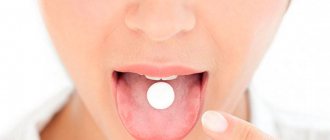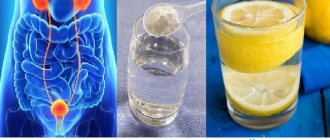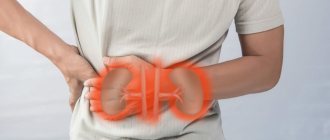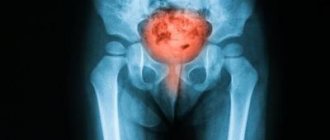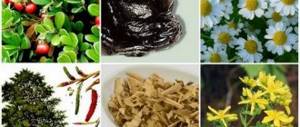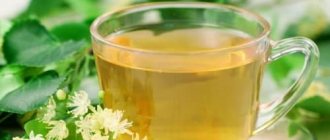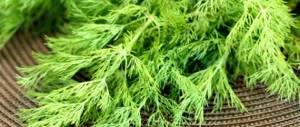The human urinary system includes the urethra, bladder, ureters, and kidneys. The urinary tract is closely connected with the organs of the reproductive system.
The most common pathologies of the urinary tract (infectious diseases) are diseases of the genitourinary system.
What diseases are the most common? What treatment of the bladder in women and men with folk remedies should be chosen?
Cystitis
The most common bladder disease is cystitis. It occurs as a result of infection entering the bladder.
The pathology is characterized by a frequent urge to urinate, with a small amount of urine being released. There are complaints of pain in the lower abdomen, which can radiate to the groin area and the anus. Due to inflammation, body temperature rises, and blood may be present in the urine.
Inflammation of the urinary tract - treatment
For urinary tract infections, antibiotic treatment is used.
It is very important to follow a few simple rules in everyday life, which will significantly reduce the risk of developing lower urinary tract infections. These include:
- good personal hygiene
- drinking the right amount of liquid
- preventing cooling of the lower parts of the body
- adequate hygiene (also partner) before and after sexual intercourse
- changing spermicides to another method of contraception.
In addition to changes in daily habits, it is also important to use medications that prevent the infection from recurring. Such a drug should have a complex effect to restore the proper functioning of the lower urinary tract: a diuretic that prevents the adhesion of bacteria to the walls of the bladder (anti-adhesive), anti-inflammatory and diastolic. After using an antibiotic or furagin, the urinary tract is sterilized and more susceptible to re-infection, so prevention is necessary to restore their natural protective barrier.
Treatment of cystitis
Folk remedies are used to treat the bladder in the form of decoctions, infusions prepared from a variety of medicinal plants, which have an antimicrobial effect, strengthen the immune system, and have an anti-inflammatory and diuretic effect.
In folk medicine for cystitis, infusions and decoctions of parsley are used. This plant contains a large amount of vitamins and ascorbic acid. Parsley has a diuretic effect and is used to treat not only inflammation of the bladder, but also other pathologies of the urinary system.
To prepare the infusion, take one hundred grams of parsley, add 500 ml of water and leave for two hours. Take two spoons three times a day until complete recovery.
A decoction is used to treat the bladder. A folk remedy is prepared from two glasses of water and 150 grams of parsley. The broth is cooked over low heat for ten minutes. Then let it cool and strain. Take three spoons up to five times a day.
During cystitis, it is recommended to reduce the acidity of urine. To do this, squeeze the juice of half a lemon into a glass and add a third of a teaspoon of soda. The composition is mixed. Taken three times a day before meals.
Cranberry juice has a positive effect on the body. This berry contains many vitamins and acids that prevent microorganisms from sticking to the walls of the bladder.
With cystitis, heat helps relieve pain. To do this, prepare a heating pad with warm water, which is applied to the lower back or lower abdomen.
When treating the bladder in women with folk remedies, vaginal douching is recommended. A remedy is prepared for it from 5 drops of tea tree oil dissolved in two liters of water. You can do sitz baths with this oil.
An infusion of yarrow herb gives good results. To prepare it, take a spoonful of crushed dry raw materials, pour in a glass of boiling water and leave for an hour. Take 50 ml three times a day. You can also brew St. John's wort. It helps not only with acute, but also with chronic cystitis.
Millet is used to treat the bladder with folk remedies in women. To make the medicine, take a glass of millet and pour the same amount of boiling water. Then everything is put on fire and boiled for ten minutes. The millet is allowed to stand for five minutes, excess water is removed. On the first day, eat a spoonful of porridge three times a day. On the second day - three spoons, from the third day the dose reaches half a glass. Millet is taken for a week.
Any type of cystitis can be cured with chamomile. This unique herb has an antibacterial, anti-inflammatory effect. To treat inflammation of the bladder with folk remedies, take 4 tablespoons of the raw material, pour two liters of boiling water, leave for 15 minutes. Then the infusion is used for sitz baths, diluting the product with water in equal proportions. The procedure is carried out up to four times a day.
You can use chamomile infusion internally. To do this, steam a spoonful of raw material with a glass of boiling water and leave for twenty minutes. Drink the product like tea. To improve the taste and increase the benefits, it is recommended to add honey to the infusion.
In advanced cases, licorice is used to treat urinary tract with folk remedies. It acts as a strong anti-inflammatory agent. To prepare the product, twenty grams of the plant are steamed with a liter of boiling water and allowed to brew for a day. Take warm.
Advantages of herbal medicine over formal treatment
The main advantage of herbal medicine is that medicinal herbs have a gentle effect on the body. At the same time, herbs have fewer strict contraindications and side effects than the same tablets that normalize excretion processes and relieve inflammation in the urethra.
This is due to the fact that herbal medicine is based exclusively on the use of natural ingredients. And these are better absorbed by the body’s systems, even those affected by serious diseases.
Medicinal herbs contain more useful substances, including minerals and vitamins necessary to strengthen the immune system.
Another significant benefit of herbs is their availability. Phytoraw materials for them can be either prepared independently during the warm season or purchased in pharmacies. Moreover, the cost of herbs is quite low. This allows people with any treatment budget to use the achievements of traditional medicine.
Stones, sand
Stones and sand can form in the bladder. This occurs not only due to chronic gastrointestinal pathologies and urinary disorders, but also due to genetic predisposition, impaired metabolism, lack of vitamin D, and dehydration.
Stones and sand cause pain in the lower back, painful and frequent urination. Hypertension develops. In some cases, the body temperature may rise and the urine becomes cloudy.
Symptoms of diseases of the genitourinary system
Since the structure of the genitourinary system is different in women and men, they have different symptoms, even if the diseases are the same. Men usually experience intense cutting pain during urination or sexual intercourse.
Situations are also likely when the excretion processes will be interrupted, thereby only increasing the pain syndrome. External irritation or redness of the penis is possible, and occasionally patients are bothered by strange purulent or mucous discharge.
If you experience unpleasant symptoms, be sure to consult a doctor: refusal of treatment and self-medication with herbs lead to serious consequences, including infertility.
Women have it even more difficult: many dangerous diseases simply do not manifest themselves, and therefore, without undergoing timely treatment, they quickly develop into chronic forms. But some feel acute pain in the lower abdomen, complain of disruption of excretory processes or the appearance of strange vaginal discharge, including impurities from blood and pus.
Sometimes women experience stabbing pain during urination, but the likelihood is noticeably lower than in men. In any case described, herbs can help.
Removing stones
Treatment of bladder stones with folk remedies involves the use of various infusions and decoctions.
Onions are an excellent remedy. It is finely chopped, placed in a container, filled with alcohol and left for ten days in a warm place. Then the product is filtered. Take two spoons twice a day before meals.
Herbal tea helps to cope with the disease. To do this, take two tablespoons of horsetail, tansy, and four tablespoons of lingonberry leaves. The raw materials are poured with four glasses of boiling water and cooked for half an hour in a water bath. Then the product is filtered and taken a glass twice a day.
Rose hips are great for removing stones and sand from the bladder. To prepare the product, take a teaspoon of crushed seeds and a glass of boiling water. The product is boiled for fifteen minutes over low heat. Then it is allowed to brew for two hours. Take 50 grams three times a day.
You can get rid of stones using the following recipe: take equal parts of corn silk, blueberry leaves, bearberry, bean leaves, lycopodium, oats and thuja shoots. Everything gets mixed up. Four spoons of the mixture are steamed with half a liter of boiling water and left for an hour. Take half a glass warm four times a day. The same remedy is added to hot baths and poultices are made with it. Treatment with infusion is continued for a week.
You can cleanse the urinary tract by taking a teaspoon of calamus, pouring a glass of boiling water and leaving for twenty minutes. Take half a glass up to four times a day for two weeks.
Rosehip for cystitis in women
Many pharmaceutical medicines and herbal teas for cystitis include rosehip extract.
And this is not surprising, because it contains a large amount of vitamin C and vitamins B, K and P. To treat cystitis, you can use both rose hips and its roots. The roots have antibacterial properties and, unlike the fruits, do not affect the acidity of the stomach as much, so they are ideal for women diagnosed with peptic ulcers or gastritis. Cystitis can also be treated with rose hips during pregnancy.
To prepare a medicinal infusion from rose hips, you need to put 2 handfuls of dry fruits and half of a medium-sized lemon cut into circles into a glass container previously scalded with boiling water. The contents of the glass container should be filled with 1 liter of boiling water, and the container itself should be sealed as tightly as possible.
The glass container should be kept in a cool and dark place for 7 days. Under no circumstances should you store a jar of rosehip infusion in the refrigerator! After a week, the finished infusion should be filtered through gauze or a special mesh.
You can also prepare a healing infusion from rosehip rhizomes. You need to take 4 tablespoons of crushed rosehip rhizome and pour 2 glasses of water over them. The mixture should be brought to a boil, simmered over low heat for 15 - 17 minutes, and then infused for 30 - 35 minutes and strained.
It is necessary to take an infusion of both fruits and rosehip rhizomes for a month, 2 cups (150-200 ml) per day. 3-4 days after starting the treatment, acute symptoms should disappear, and subsequent use of the infusion will help restore immunity, cleanse the kidneys and bladder.
Atony
Atony is of two types: when urination occurs without urge, and when it is impossible to hold back urine due to strong pressure from the bladder muscles.
With atony, there is a weak stream and a delay in the onset of urination. Uncontrolled urination is also observed, even with slight tension in the abdominal muscles, and urinary incontinence.
Rowan
Experts recommend drinking a decoction of red rowan berries, which has a mild diuretic effect and effectively relieves symptoms of the disease, only during periods of exacerbation of cystitis. To prepare a decoction of red rowan, you need to pour 1 glass of berries with 1 liter of boiling water and leave in a thermos for 5 - 7 hours. The finished decoction should be drunk 3 times a day, 100 ml (1÷2 cups). To improve the taste, you can add 1 teaspoon of honey to the drink.
A healing decoction of chokeberry (chokeberry) is prepared as follows: 2 teaspoons of dried chokeberry berries should be poured into 400 - 450 ml of boiling water and left for several hours. The finished infusion should be drunk 20 - 50 ml throughout the day. This drink not only helps get rid of cystitis, but also saturates the weakened body with vitamin C, thanks to which the immune system is noticeably strengthened. Chokeberry contains much more vitamin C than citrus fruits or currants.
Treatment methods for atony
Treatment of bladder symptoms with folk remedies involves the use of herbal decoctions of horsetail, lycopodium, and herbs.
To prepare a decoction of lycopodium, you need to take a teaspoon of crushed raw material and pour two glasses of boiling water, leave the product for an hour. Take half a glass twice a day.
A decoction of horsetail, which is added to the bath, helps to cope with atony. The product is prepared from 150 grams of the plant and two liters of water. The mixture is boiled for half an hour, then filtered. The decoction is added to a sitz bath.
A decoction of burdock root, eryngium, licorice, birch leaves, and hollow bark has a positive effect. Everything is taken in equal parts and mixed. Then three spoons of the mixture are poured into a liter of boiling water and left for a couple of hours. This remedy is used one hundred grams three times a day.
Cranberry
Cranberries contain organic acids, pectins, proanthocyanidins, flavonoids, triteprenoids, which help the female body fight pathogenic viruses and bacteria that cause the occurrence and development of cystitis.
To prepare a medicinal decoction of cranberries for cystitis, you need to thoroughly rinse 1 glass of freshly picked berries, grind them by hand or using a blender into a paste that needs to be strained. The juice obtained by straining the cranberry pulp must be placed in a dark and cool place for some time.
The strained pulp must be poured into 1 liter of water, put on fire and boiled for 7 – 9 minutes. The cooled broth should be mixed with juice and 2 teaspoons of honey.
You need to take a ready-made cranberry decoction 4 times a day, 100 ml for 7 – 14 days.
Cystocele
They treat bladder diseases with folk remedies even in the most advanced cases.
Using methods that have been proven over the years, you can even cope with cystocele, i.e. prolapse of the bladder. This phenomenon is observed during difficult childbirth, when the muscle tissue is severely injured and stretched. As a result, the bubble descends, causing a lot of trouble for women. In advanced cases, only surgery can correct the situation. With minor prolapse, folk methods, gymnastics, and wearing a bandage help cure the disease.
General recommendations
Cystitis is an inflammatory process localized in the bladder area. The disease is accompanied by a lot of unpleasant symptoms: fever, severe pain in the lower abdomen, problems with urination. They appear suddenly and cause suffering. A properly selected folk remedy for cystitis will help you cope with them. But using the medicine alone is not enough; you also need to follow a few simple recommendations:
- Drink more fluids. It helps flush out pathogenic microflora and its waste products from the body. In addition to clean water, you can drink natural juices, unsweetened compotes and fruit drinks.
- Apply a warm compress. A heating pad will help cope with severe pain. It is applied to the lower abdomen and left for half an hour. This treatment is especially effective in women.
- Follow the principles of proper nutrition. Avoid processed foods, fast food, fatty and fried foods, and confectionery. Try to eat as many alkaline foods as possible. These include cabbage, lettuce, garlic, and onions. They help suppress bacterial activity.
- Get more rest. Rest is especially important during exacerbations.
- Avoid hypothermia. Don't sit on cold surfaces. Always dress for the weather. During treatment with traditional methods, wrap your lower back with a warm scarf.
- Maintain good hygiene. To wash, use only specialized gentle products that do not contain irritating components.
Following these tips will speed up the healing process and restore normal functioning of the urinary tract. During periods of remission, it is important to increase the body's protective properties. Prevention of cystitis in women involves exercise, proper nutrition, and walks in the fresh air.
Treatment of cystocele
Quince tea is used to increase muscle tone. The fruits have unique medicinal properties that help increase muscle tone not only of the bladder, but also of the vagina. To prepare the medicine, prepare tea in a ratio of 1 part fruit to 10 parts water. The remedy is taken five times a day as tea. Quince can be taken for a long time without a break.
For cystocele, a tincture of astragalus root is prepared. To prepare it, take one part of the raw material and ten parts of vodka. Everything is mixed and infused for two weeks. The product is taken three times a day, 5-7 drops.
Datura is often used to treat prolapsed bladder. It has a positive effect on muscles and helps new cells form. To prepare the product, take a spoonful of raw materials and pour 7 liters of water, leave for 10-15 minutes. After cooling, the product is used for a sitz bath, which can be taken for no longer than 20 minutes.
Parsley
Parsley contains a large amount of vitamin C, beta-carotene, essential oils saturated with eugenol and rich in the phenol myristicin, folic acid, flavonoid apigenin, luteolin (immunomodulatory and anti-inflammatory compound), potassium and calcium salts, phosphorus, iron, magnesium. Therefore, it is not surprising that parsley helps fight the first unpleasant signs of cystitis. It can also be used for chronic cystitis, so as not to take antibiotics on an ongoing basis.
Parsley tincture for cystitis is prepared as follows: a large bunch of fresh or dried parsley (stems and leaves) should be finely chopped and pressed a little with a masher, then pour 1 liter of boiling water and add 2 tablespoons of thick flower honey. The container in which the mixture is located must be covered with a lid and allowed to brew for 60 - 80 minutes.
The finished tincture must be carefully strained. If there are no stomach problems, then you can add a little lemon juice to it. This recipe allows you to prepare a tincture that will last for 2 days, which is the best option.
You need to take the tincture in small portions (80–100 ml) 3–4 times a day. For preventive purposes, parsley tincture against cystitis should be drunk for 2–3 weeks in the spring and autumn, when all chronic diseases worsen. For medicinal purposes, it should be drunk until the patient’s condition noticeably improves.
Experts do not advise pregnant women to treat cystitis with parsley, as it tones the uterus and can cause miscarriage. Parsley tincture is also contraindicated for women during menstruation, as this plant can increase bleeding.
Overactive bladder
Overactive bladder is a pathology associated with impaired functioning of the organ. It causes frequent urges that are difficult to control. Sometimes urinary incontinence may occur.
Determining the cause of the pathology is not so easy. Often the disease is associated with neurological diseases or is caused by innervation of the detrusor.
Inflammation of the urinary tract - effective treatment with home remedies
If you react immediately, there is a high chance that the infection will be mild and will go away soon. First of all, drink plenty of fluids. In the beginning, even a glass of liquid every half hour speeds up the leaching of microorganisms from the urinary tract. Dissolved urine will not bake when urinating. Mineral water remains the healthiest and the type of drink does not matter. Only avoid coffee and black tea because they irritate the bladder. Well made diluted blackcurrant juice which, thanks to its high vitamin C content, inhibits the growth of bacteria.
Treatment of hyperactivity
Treatment of the bladder with folk remedies in men and women should only be carried out under the supervision of a doctor. After all, in order to cope with hyperactivity, it is necessary not only to take infusions and decoctions, but also to follow all the doctor’s recommendations: visit the toilet strictly according to the schedule, gradually increasing the intervals of visits. A set of physical exercises is required.
To restore normal bladder function, it is recommended to take the following remedies:
- St. John's wort infusion instead of tea. It is prepared from two spoons of raw materials, steamed with a liter of boiling water. The product is infused for an hour.
- Decoction of lingonberry leaves. To prepare it, you will need two spoons of raw materials and a liter of boiling water, let the composition infuse for an hour. Take as tea. You can add honey.
- Apple, honey and onion. The onion is peeled, finely chopped, mixed with a spoonful of honey and half a grated apple. This paste is taken one spoonful three times a day.
What to do if your urinary tract infection doesn't go away
If symptoms do not improve within two days after home treatment, you should see a doctor. Do not delay your appointment, especially if you have a fever, pain in the cruciate area, or blood in your urine.
We remind you that folk remedies are effective and time-tested, but they are used either at the very beginning of the disease, or, as an adjuvant, in combination with medications, significantly accelerating recovery. I wish you good health!
Source
Author Natalie Reading time: 10 min. Published 11/18/2019
Treatment of genitourinary diseases is a long process that takes both strength and significant funds. But you can refuse some drugs by replacing them with herbal medicines. Let's try to understand how to properly use herbs in the treatment of the excretory and reproductive systems in women and men.
Therapeutic baths
In case of exacerbation of cystitis, warming baths are an excellent remedy that alleviates symptoms and promotes speedy treatment. They need to be prepared according to folk recipes.
Therapeutic baths
The most common remedy is chamomile flowers. To prepare a bath, you need to infuse 500g of flowers in 10l of boiling water.
You can also use pine or hop cones for these purposes. To do this, they need to be boiled for half an hour and then infused. Pour the resulting broth into the bath. It is also recommended to take calamus roots and horsetail herb.
You can independently prepare a bath mixture from dandelions, birch leaves, calamus roots, celandine grass, chamomile flowers and shoots or fruits of juniper.
Brief description of the disease
Cystitis is a bacterial inflammatory disease of the bladder. Infections of various groups in combination with provoking factors lead to the appearance of both acute and chronic forms of the disease.
Due to the anatomical characteristics of the female body, they are more susceptible to developing the disease than males.
The urethra in women is short and wide, which makes it easier for pathogens to enter the bladder through it.
Symptoms and treatment of cystitis do not depend on the type of pathogen. Regardless of the group of infection, the same clinical picture will appear. There may be differences in the intensity of symptoms.
In women, the following routes of infection are distinguished:
- Hypothermia of the body. This is a common cause of cystitis.
- Contact and household path. If the rules of intimate hygiene are violated, microorganisms may enter the bladder from the vagina, rectum or external genitalia.
- Sexual path. During sexual intercourse, the partner's penis leads to infection. This is an infection that is on the male genital organ, and one that is on the labia or skin of the woman’s perineum.
Traumatic cystitis occurs less frequently. This occurs with injuries to the anterior abdominal wall or perineum.
Then hemorrhages appear in the walls of the bladder, which lead to the appearance of an inflammatory process.
The causes of chronic cystitis in women differ. Occurs as a result of improper treatment or lack of treatment. In case of aggravated chronic disease, the symptoms are similar to the acute form of the disease.
Treatment with herbs and herbs
Many ladies, choosing between chemical drugs and herbal remedies, prefer option 2.
Traditional herbal recipes are available to everyone, and their safety and effectiveness have been tested many times. Existing methods of alternative treatment are varied: a single plant or combinations of several herbs are used.
Green mass, roots, and fruits with beneficial properties are used.
To select a suitable recipe, you will need to focus on:
- cause of the disease;
- flow features;
- general condition of the body.
An individual approach will allow you to choose the most effective recipe for relieving the main symptoms, reliably eliminating the causes of inflammation, and strengthening the immune system.
Among the individual plants that have a complex of properties necessary for the treatment of cystitis, the following are recognized:
- medicinal chamomile (flowers);
- bearberry (bear ears);
- thyme;
- knotweed (bird knotweed);
- lingonberries (berries, leaves);
- St. John's wort;
- horsetail.
A single herbal remedy contains a certain set of beneficial properties. Specially selected complex urological preparations will help you achieve the most complete therapeutic effect. Ready-made mixtures of crushed plants are conveniently packaged, which facilitates the brewing process. The composition is selected based on the form of the disease.
The following types of fees are popular:
- Urological;
- Healthy kidneys;
- Cystophyte;
- Phytonephrol;
- Leros.
They help alleviate the condition, help fight various manifestations of cystitis, and prevent the spread of inflammation.
In order for the results of the therapeutic effects to last, it is recommended to use infusions of medicinal herbs for another 1–2 weeks after the complete absence of symptoms of cystitis.
The herbs that act as components of the composition will have a beneficial effect on the health of the entire genitourinary system.
Contraindications
Folk remedies, like chemical analogues, have a number of contraindications and side effects. There are no herbs and plants found in nature that have the same effect.
In addition to antibacterial, anti-inflammatory or diuretic effects, they can increase blood pressure, speed up the heart, and increase the production of gastric juice and enzymes. Before starting treatment, consult your doctor.
How to get rid of cystitis using traditional methods is best known to a herbalist; doctors from this field of medicine are knowledgeable about the medicinal effects of plants and understand who is allowed to treat the disease with folk remedies.
Contraindications for use are age under 6 years, pregnancy, breastfeeding and the presence of serious pathologies of other organs and systems.
During pregnancy and breastfeeding, it is not recommended to use herbal remedies, the substances included in the composition penetrate the placental barrier.
Some of them cause disturbances in fetal development or have toxic effects. What to do for cystitis with such contraindications? Self-medication is strictly prohibited; at the first appearance of the disease, consult a doctor.
In addition to contraindications, we note that long-term use of folk remedies leads to poisoning.
Plants contain substances that, when accumulated in the body, cause a toxic effect. This property is expressed in bitter wormwood. Treatment of such poisonings is difficult; there are no specific antidotes for these toxins.
You can get rid of cystitis using folk remedies, but therapy is recommended under the supervision of a doctor. Treatment of cystitis at home aggravates the condition and leads to chronicity of the process.
Folk remedies give a choice between a huge number of medicinal herbs and plants, which allows you to choose a remedy for treatment.
